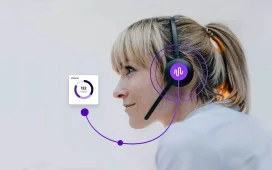Medical emergencies don’t follow business hours. When traditional clinics close their doors, patients often find themselves in difficult situations, needing medication urgently. NextClinic offers a solution for those late-night health concerns when immediate medical attention becomes necessary but doesn’t warrant an emergency room visit. The convenience of accessing medical advice during off-hours can make a crucial difference in managing conditions that arise unexpectedly or worsen overnight.
How does digital healthcare bridge the gap?
When traditional healthcare facilities close, the digital space opens opportunities for continued care. Online prescriptions provide a crucial service for patients needing medication outside standard office hours. These platforms connect patients with licensed healthcare providers who can assess conditions remotely and prescribe appropriate medications when necessary. The process typically involves completing a health questionnaire, connecting with a provider via video or chat, and receiving prescriptions sent directly to a nearby pharmacy. This system ensures patients receive timely care while maintaining proper medical oversight and adherence to prescribing regulations. Digital healthcare solutions have transformed the way we think about medication access during non-standard hours.
Growing demand for after-hours care
Healthcare continues to evolve, with patients in search of more convenient and accessible options. Medical services after hours are in high demand, especially for non-life-threatening conditions that still require prompt attention. The modern patient expects healthcare to adapt to their schedule, not vice versa.
- Respiratory infections that worsen at night
- Minor injuries requiring pain management
- Lost or damaged prescription medications
- Sudden allergic reactions requiring antihistamines
Many patients delay seeking help due to time constraints during regular clinic hours, leading to unnecessary suffering and potential complications when conditions worsen. The gap between standard office hours and emergency services leaves many people in a difficult middle ground of needing help but not requiring emergency intervention.
Automated prescribing
Virtual prescription services implement various safeguards to ensure patient safety while providing convenient care. Licensed providers follow strict guidelines when assessing patients and recommending treatments. Most platforms maintain comprehensive medical records and offer follow-up communications to monitor patient progress. These digital safeguards create accountability and continuity in the prescribing process. These services also help reduce unnecessary emergency room visits, decreasing strain on hospital resources while providing appropriate care pathways for less severe conditions. The proper triaging of medical needs benefits patients and the broader healthcare system.
Insurance and cost navigation
After-hours virtual care presents varying cost structures depending on the service provider and insurance coverage. Many insurance plans now include telehealth benefits, though coverage specifics differ widely.
- Some services offer subscription models with unlimited consultations
- Others charge per-visit fees ranging from $30-150
- Prescription costs remain separate and depend on individual insurance coverage
For patients without insurance, these services often provide more affordable alternatives to urgent care or emergency department visits. The transparent pricing models help patients make cost-effective decisions about their healthcare needs without sacrificing quality or timeliness. The availability of after-hours prescription services represents a valuable advancement in healthcare accessibility. By connecting patients with qualified providers when traditional offices remain closed, these services help address immediate health concerns while maintaining appropriate medical standards.








